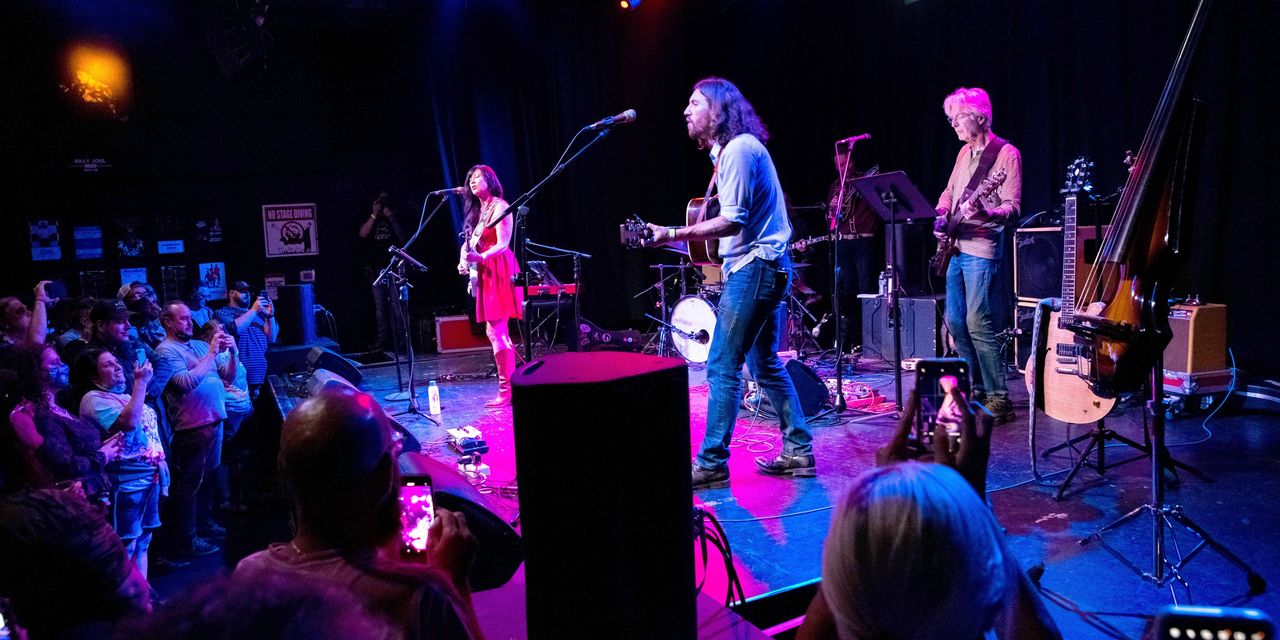For two weeks, Chris Cobb checked the weather forecast obsessively. Exit/In, the historic Nashville music venue he owns, was set to host its first live event since Covid-19 shut it down.
He had been plotting a return for months, rehiring staff, negotiating with artists and transforming an old shipping container into an outdoor stage with a new 40-foot mural. Money flowed out of the club’s checking account. Revenue from ticket sales trickled in.
On June 1, a day before the first two bands were scheduled to perform, forecasters called for a greater than 90% chance of rain, as well as thunder. “It’s 444 days that we’ve been closed. We are going to get rained,” said Mr. Cobb. “It’s a cancel-the-show forecast.”
Covid-19 devastated the live-events business as venues went dark due to lockdowns and a lack of demand. In metropolitan Nashville, home to a vibrant live-music scene, revenue and employment fell nearly 75% at independent music venues in 2020, according to the Nashville Area Chamber of Commerce.
As state governments lift restrictions on large gatherings, small businesses across the country are trying to figure out how to make up for a lost year. Rising vaccinations and an American public eager to get back out are providing reason for hope. At the same time, workers aren’t rushing back. Capacity restrictions and other safety measures can dent profits. Rent relief from landlords has ended or will soon, and government loans are running out.














































